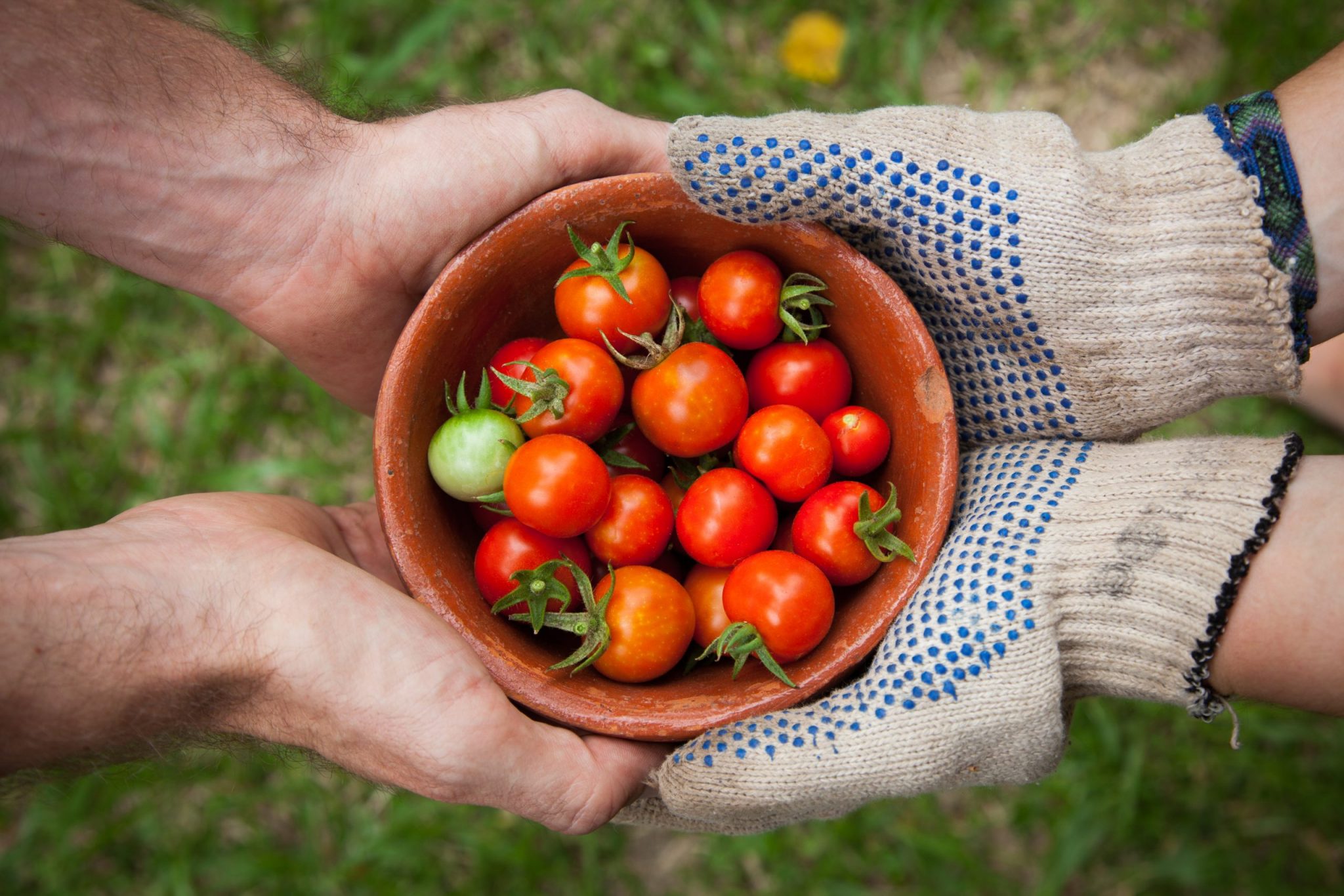Increasing Barrier Free Access to Food Security Through Community Gardens: The Role of Niagara Region Municipalities in Advancing Policy and Reducing Barriers
United Way Niagara and Niagara Community Garden Network Release Position Statement to Advance Food Security
Food security is a basic human right yet almost 60,000 people in Niagara are food insecure, experiencing limited access to nutritious, affordable and culturally appropriate food*.1 The Government of Canada states “income-related food security is an important public health issue in Canada and is a key social determinant of health. Food security is essential for healthy eating – without consistent economic access to sufficient nutritious food, healthy eating cannot be achieved, increasing the risk of poor health.”2 We recognize the significant effect that food insecurity can have on one’s mental, physical, social and overall health and wellbeing. For Niagara residents to be food secure, as defined by the United Nations Committee on World Food Security, everyone in Niagara, at all times, has physical, social, and economic access to sufficient, safe, and nutritious food that meets their food preferences and dietary needs for an active and healthy life.3
Community gardens act as a promising strategy to decrease food insecurity because of their ability to provide lower-income households with access to nutritious food.4 Community gardens are significantly improving access to healthy and affordable food at the more than 1,200 plots across Niagara, often for our most marginalized populations. Community gardens can affect an individual’s skill development, employment and income, our economic landscape, the environment, and our social and community connectedness. The recent Case Study of the St. Catharines Centennial Community Garden highlights how “community gardens not only address food insecurity but also provide a safe space for all participants to form meaningful relationships; with one another, their community and the natural environment”. 5 However, community gardens, while adding tremendous value to the community, continue to be faced with barriers to success, including policies and protocols related to land access and use, access to water, associated fees and certificates of insurance.
Best practices in other communities have easily addressed these barriers. Niagara’s municipalities can play an important role in creating barrier free access to community gardens, thereby investing in viable solutions to food security. We are positioned well to advance community gardens best practices and policies that are in place in other regions and municipalities. Public Health Ontario’s Evidence Brief Municipal and Community-level Interventions to Promote Sustainable Food Systems states “municipalities are positioned to intervene in their local food system, and can enact policies and programs that build a culture around local food initiatives.” 6 We believe municipalities in the Niagara region are ready to implement best practices to strengthen our food security system through community gardens.
The Halton Food Council’s Community Garden Policy Scan states “The role of local governments is fundamentally a supportive and enabling one. Community gardens are successful because local gardeners are committed to making them so. When local governments open their doors and invite the community in, there is a great deal of community expertise and experience to be shared. Local governments do have a significant role to play in the process: by removing policy barriers; enacting supportive policies; providing support related to water access, land tenure, and composting; by signaling their support of community gardens in government communications; and by dedicating staff time to interact with community gardening groups.” 7
Now is the time to act. Municipalities can create policies that empower Niagara’s citizens and provide them with barrier free access to food through community gardens. The best practices and policies we encourage and recommend Niagara’s municipalities to develop specifically relate to:
1. Land Use for community gardens, urban agriculture and food security
2. Waiving or reducing fees imposed by the municipality
3. Provide options for holding certificates of insurance
4. Commitment to the program with reasonable annual investment
5. Ongoing program evaluation and development
There is no need to reinvent the wheel in Niagara when it comes to implementing best practices for community gardens. Many cities across Ontario have recognized the critical role community gardens play and have implemented the policies and mechanisms to reduce these barriers. These municipalities include, but are not limited to; Guelph, Hamilton, Kingston, Kitchener, London, Mississauga, Ottawa, Toronto, Windsor and Waterloo.
Community gardens best practices and policies from across the province are readily available and can be found at sources including, but not limited to: Sustain Ontario; ChangeLab Solutions; Toronto Food Policy Council; Region of Waterloo; and local Public Health units including the Wellington-Dufferin- Guelph Public Health. The Niagara Community Garden Network and United Way Niagara, in partnership with the Niagara Food Security Network, would be delighted to provide the recommended policies and work with municipalities to transition to inclusive and barrier free approaches.
We ask that Niagara government representatives, stakeholders and community partners take action to improve access to affordable, healthy and culturally appropriate food* by reducing the barriers imposed by current regional and/or municipal bylaws, policies or practices.
It is highly recommended that each of Niagara’s municipalities conduct a review of current policies and practices, assigning the necessary staff and departments to assess and recommend a barrier free approach. We recommend a timely implementation of policies and practices that reduce barriers for community gardens and improve access to healthy, affordable and culturally appropriate food, thereby reducing food insecurity in Niagara.
References:
1 PROOF Policy Research Study. May 2021. Retrieved from: PROOF_FACTSHEET_Provincial-policies-052021.pdf
2 Government of Canada. Canadian Community Health Survey. 2004. Retrieved from Canadian Community Health Survey, Cycle 2.2, Nutrition (2004): Income-Related Household Food Security in Canada – Canada.ca
3 United Nations Committee on World Food Security. Global Strategic Framework for Food Security & Nutrition (GSF). 2017 Edition. Retrieved from CFS: Online GSF (fao.org)
4 The Blank Page. How Community Gardens AreTackling Food Insecurity. Published By Dhruvika Angrish. Retrieved from How community gardens are tackling food insecurity – The Bl_nkpage (blnkpage.org)
5 Tamarack Institute. Vibrant Communities. Case Study | Harvesting Local Gifts and Assets at the Centennial Community Garden. May 2021 Retrieved from: Harvesting Local Gifts & Assets at Centennials Community Garden.pdf
6 Public Health Ontario. Municipal and Community-level Interventions to Promote Sustainable Food Systems. July 2020. Retrieved from Municipal and Community-level Interventions to Promote Sustainable Food Systems (publichealthontario.ca)
7 Community Garden Policy Scan. Prepared by Dillon Consulting Limited for the Halton Food Council. November 2013. Retrieved from May 20 2014 Health and Social Services MO1214 Halton Food Council Progress 20122014 MO1214 attachment 2pdf 173641.pdf Source: Barbolet, 2009, p. 6
* Culturally Appropriate Food – As defined by Food Secure Canada.
Published June 2021 – Prepared By United Way Niagara and the Niagara Community Garden Network
Endorsed by the Niagara Poverty Reduction Network and the Niagara Food Security Network members, comprised of more than 100 individuals and community organizations including Niagara Region Public Health and Emergency Services
DOWNLOAD Increasing Barrier Free Access to Food Security Through Community Gardens: The Role of Niagara Region Municipalities in Advancing Policy and Reducing Barriers







